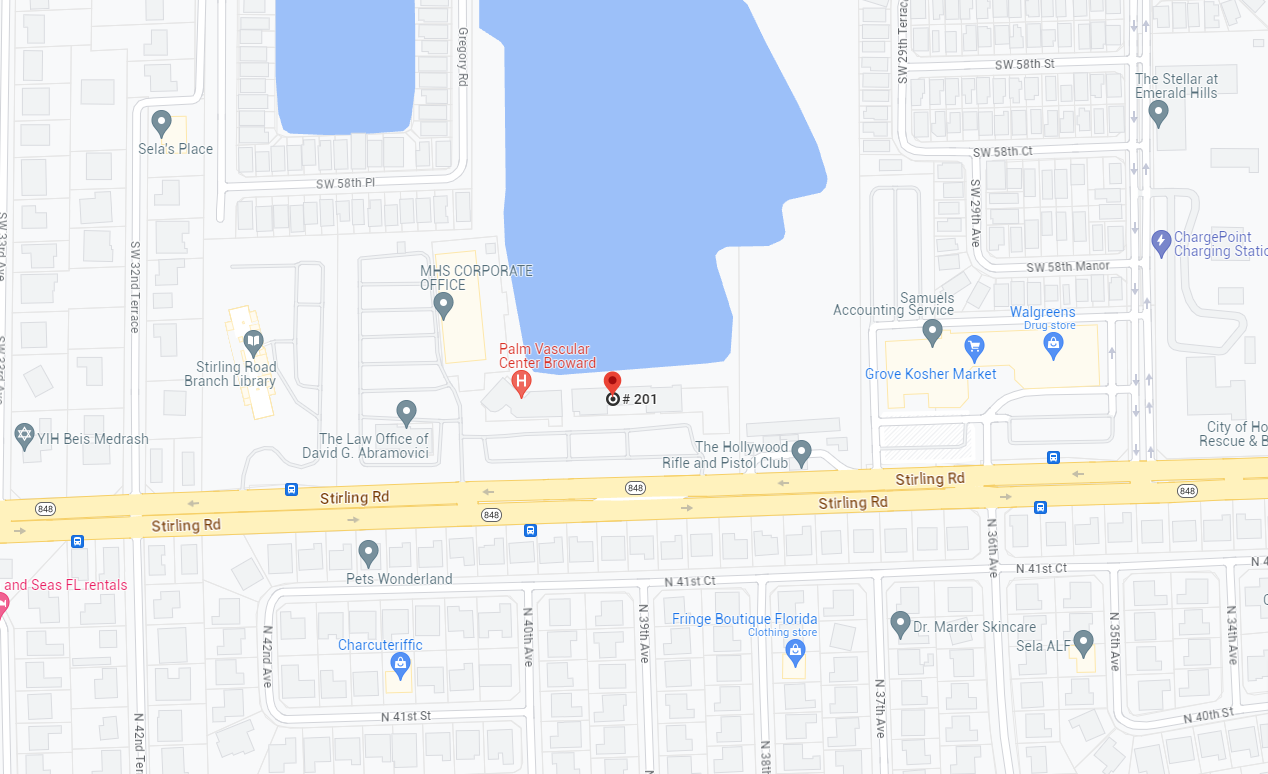Garnishing a Judgment Debtor’s Interest in an Estate
By: Brandon D. Cole
At long last, you emerge victorious in your lawsuit, holding your judgment high. One problem, the judgment debtor does not have sufficient assets to satisfy it. However, you learn that the judgment debtor has an interest in an ongoing estate proceeding and will receive a distribution upon the conclusion of the proceeding. You rush out, have the writ of garnishment issued, and serve it on the personal representative. In the words of Lee Corso, “not so fast my friend.” When it comes to seeking to garnish a beneficiary’s interest in an estate, the Florida Probate Code requires an additional step prior to permitting the garnishment of an estate’s assets.
Over a century ago, the Florida Supreme Court, in Post v. Love, 19 Fla. 634 (1883), held that an executor of an estate could not be required to answer a writ of garnishment by a creditor of an heir. The court’s decision was based on (i) the text of the garnishment statute, which limited the garnishment of intangible personal property to debts due from third-parties, and (ii) the concern that allowing estates to be garnished would cause “great confusion and expense” in their administration. Id. at 642.
In 1967, the legislature amended Section 77.01 of the Florida Statutes to allow the garnishment of “intangible personal property of [the] defendant in the possession or control of a third person.” §77.01, Fla. Stat. As the Fourth District Court of Appeal noted in Murray v. Nationsbank of Florida, N.A., 846 So.2d 548 (Fla. 4th DCA 2003), this change in the garnishment statute now permits a beneficiary’s interest in an estate to be garnished. The Murray court reasoned that, because the right to inherit from an estate is a type of intangible personal property, the expansion of the categories of property that can be garnished under the 1967 amendment to the garnishment statute included a beneficiary’s interest in an estate. Id. at 551. But the revised garnishment statute only allows a beneficiary’s interest to be garnished; what about the additional step mentioned above?
The predecessor to the Florida Probate Code, the Probate Act, prohibited “any levy [] against any property, real or personal, of the estate of a decedent.” Brown v. Sweat, 6 So.2d 538 (Fla. 1942). However, the current statute, Section 733.706, does not contain such a blanket prohibition, but, instead, provides that:
Except upon approval by the court, no execution or other process shall issue on or be levied against property of the estate. An order approving execution or other process to be levied against property of the estate may be entered only in the estate administration proceeding.
733.706, Fla. Stat. Thus, the current statute allows a writ of garnishment to issue against the property of an estate only if the probate court enters an order approving issuance of the writ.
The Murray court discussed two additional points that should be addressed in seeking an order approving the issuance of a garnishment. First, the probate court should make a finding that the garnishment will not interfere in the administration of the estate. Murray, supra, at 552. Because the probate court is not obligated to approve the issuance of a writ of garnishment against the estate, it is the responsibility of the party seeking approval to show that the garnishment will not be intrusive or disruptive to the estate administration. If the garnishment will be disruptive and cause the estate’s expenses to increase unnecessarily, it not only affects the interest of the judgment debtor, but the rights of all of the interested parties to the estate. Second, the probate court must control any payments from the estate’s assets. Id. This is important because Section 733.706 requires not only approval of the issuance of process, but also approval of the execution against the estate’s assets.
Let us summarize the process of garnishing property of an estate. First, a creditor must obtain its judgment. Second, the creditor must file a motion in the probate proceeding requesting the entry of an order (1) permitting a writ of garnishment, against someone to whom the estate is indebted, to be issued against and served on the personal representative of the estate, (2) finding that the garnishment will not interfere with the administration of the estate, and (3) stating that the probate court will control any payments from the estate assets. Third, the creditor must follow the standard statutory procedure for garnishment before the court from which the garnishment issued and serve the garnishment on the personal representative. Finally, the creditor must seek the approval of the probate court to execute against the judgment debtor’s interest.
The creditor should be aware of two relevant issues. First, the execution may not be approved until the personal representative is ready to distribute the estate’s assets and close the estate. Second, if the garnishment is served on the personal representative before a determination can be made of the amount due the judgment debtor, the personal representative may not be able to state in his or her answer whether the estate is indebted to the judgment debtor or list the property of the judgment debtor in the personal representative’s possession or control. The impact of a premature garnishment on a personal representative in Florida has not yet been determined by the appellate courts.
If you are a judgment creditor, and you are seeking to garnish the judgment debtor’s interest in an estate in Broward, Miami-Dade, Palm Beach County, or anywhere in Florida, please contact a Broward County Probate & Estate Administration lawyer by calling (954) 764-6766 or by completing the contact form on this page.
Recent Changes to Residential Landlord-Tenant Statutes
By: E. Scott Golden
A number of changes to the residential landlord-tenant law recently became effective. Among the principal changes are the following:
1. The security deposit law is tightened up. If a landlord does not notify the tenant of the intent to impose a claim within 30 days of the tenant’s move, the landlord must provide a full refund. This is the same as prior law, but clarifies it.
2. The leases for all landlords with at least five rental units must contain specific statutory language about security deposit protection procedures. Because this language is new, current lease forms do not contain this language! Without the language, a landlord’s claim on a tenant’s security deposit may be viewed as invalid or may limit the landlord’s claim on the security deposit. All leases entered into as of January 1, 2014, must contain the new deposit language.
3. A landlord can now evict after a seven-day notice for any purpose. The law used to require further notice in some circumstances. Not now. Evictions can proceed more quickly.
4. Landlords can now accept partial rental payments in the same month that they file an eviction. However, the partial payment must be placed in the court registry or a new 3-day notice must be served. Until now, some courts would not let landlords evict at any time in a month after receipt of payment of partial rent, even if the payment may have constituted past-due rent from a prior month, rather than rent for the current month.
5. If a lease requires tenants to provide up to 60 days’ notice to vacate (or, presumably, for automatic renewal), the landlord must provide the same amount of notice of non-renewal.
These are just a few of the changes. If you need to consult with a Broward County real estate attorney regarding a landlord-tenant matter, then please contact our firm at (954) 764-6766 to schedule an appointment.
Fla. Stat. § 489.128 Now Allows Payment to Some Unlicensed Contractors
By: E. Scott Golden
Because of the way courts have construed a recent change in Florida law, an unlicensed contractor may, in some circustances, be able to be paid through a court proceeding. Until recently, that was not the case.
Under the old law, if a contractor was required to have a license to perform his services, but did not have a license, he could not recover anything in court if he was not paid. Fla. Stat. §489.128 (which precludes any relief “in law or equity by the unlicensed contractor.”) That has now changed, in certain circumstances.
In the case of MGM Constr. Svcs Corp. v. Travelers Cas. & Sur., 57 So. 3d 884 (Fla. 3d DCA 2011), the Third District Court of Appeal decided that, because of a recent change in the language of Section 489.128, if a contractor does not need to have a state license, but needs to have a county license, and fails to procure the county license, the contractor is not precluded by 489.128 from seeking affirmative relief in court. This is a change from prior law (which continues to control for contractors who are required to have a state license).
We now have four situations when an unlicensed contractor performs services:
1. State license required for the type of work being done: The contract is completely unenforceable in law and equity if the contractor did not have a license. In at least one district (the 1st Distrcit Court of Appeal in North Florida), a person that has paid the unlicensed contractor is entitled to seek disgorgement of the money that has been paid, despite getting to keep the benefit of the contractor’s work.
2. No state license required, but county license required, for the work being done, and county ordinance does not say that a contract by an unlicensed contractor is unenforceable: The contract is not automatically unenforceable (at least in the 3d DCA in the MGM Construction case). There is a series of factors to be weighed, which are listed in MGM in order to determine enforceability.
3. No state license required, but county license required, for the work being done, and county ordinance says that a contract by an unlicensed contract is unenforceable: MGM does not directly address this, but the decision intimates that the contract would not be enforceable
4. No state or county license required: The contract is generally enforceable.
If you need to consult with a Fort Lauderdale construction attorney regarding an issue involving an unlicensed contractor, then please contact our firm at (954) 764-6766 to schedule an appointment.






